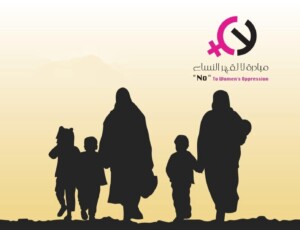‘Laws, impunity in Sudan foster sexual violence’: international organisations
International and Sudanese civil society organisations called on Sudan to reverse the atmosphere of impunity that fosters sexual violence, committed by its security forces.
On the occasion of the International Day for the Elimination of Sexual Violence in Conflict, 24 international and Sudanese civil society organisations called on the Sudanese government to reverse the atmosphere of impunity that fosters sexual violence committed by its security forces. “The scale of sexual violence is likely much greater than any reports indicate.”
Human Rights Watch, Sudan Democracy First Group, Waging Peace, El Khatim Adlan Center for Enlightenment & Human Development (Kace), African Centre for Justice and Peace Studies and Sudan Consortium, among others, signed a joint statement on Sunday that demands from Sudan to hold perpetrators of sexual violence accountable, and review its laws and policies. The public discussion about it in Sudan is impeded by severe restrictions on freedom of the press.
'In Darfur, as the report of the UN Secretary General noted in April 2016, Sudanese government forces have continued to use sexual violence during attacks on villages and displaced persons over the last 12 years. This was reflected in President Bashir’s indictment by the International Criminal Court (ICC) in 2009, which includes charges of rape committed by Sudanese forces as a crime against humanity.
In 2015, the African Union-United Nations Mission in Darfur (Unamid) peacekeeping mission documented 80 cases of conflict-related sexual violence in the limited areas the mission staff could access. In October 2014, during a three-day attack by government forces on the town of Tabit, Human Rights Watch documented credible evidence that 221 women and girls were raped. Following this attack, Unamid was not allowed to access the area for weeks, and then only in the presence of Sudanese government officials. There has been no evidence that the survivors of the attacks have received necessary medical and psycho-social services, and there are continuing concerns for the victims' security.
In South Kordofan and Blue Nile states, where ongoing conflict and the government’s persistent aerial bombardments have forced half of the population to flee their homes, Sudanese forces have also repeatedly engaged in sexual violence. In February 2015, for example, the Sudanese monitoring group Human Rights and Development Organisation (HUDO) reported how government forces raped at least eight women in Kadugli, the capital of South Kordofan, in one week. In late 2014, large numbers of women fleeing government-controlled areas in Blue Nile told Human Rights Watch researchers how they were raped by government soldiers.
Criminal law
The scale of sexual violence is likely much greater than any reports indicate. Independent monitors are unable to access most of Sudan’s conflict affected areas and survivors often do not report incidents, due to insecurity, stigma, the fear of reprisal and other obstacles. Among the obstacles are laws and policies that fail to ensure a safe environment for reporting sexual and gender based violence incidents and a consistent failure to prosecute these crimes.
Despite recent changes to the definition of the offence of rape in Sudan’s criminal law, the law remains unclear about evidence standards that apply and women who report sexual offences remain at risk of prosecution for adultery or committing “immoral acts” if they fail to prove a rape case.
Aid gap
In addition, many of the international and domestic organisations expelled from Sudan following the ICC indictment provided medical, legal, and psychological services to women, and local civil society groups have faced serious difficulties filling this gap.
Severe restrictions on freedom of expression also extend to the public discussion about sexual violence. In May 2015, authorities confiscated and suspended newspapers and there were strong reasons to believe the censorship was to prevent coverage of a press conference by the UN expert on violence against women who said she had serious concern about the “silence and the denial” of the existence of violence against women in Sudan by state officials and some members of civil society.
Impunity
Accountability for sexual violence is rare to non-existent. The UN Secretary General’s report on conflict related to sexual violence found that “in 2014, 63 incidents reported to the police resulted in just two convictions.” This is in part due to restrictive practices in terms of what evidence is considered to be admissible but also issues mentioned above.
Prosecutions are made even more difficult by the broad immunities granted to Sudan’s armed forces and government officials, which cover “acts performed in the line of duty.” These immunities can only be lifted by the Ministry of the Interior or Justice in the event they elect to prosecute.
The Sudanese government’s failure to hold to account its own forces responsible for rapes and other sexual violence has fostered an atmosphere of impunity across Sudan – not only in the conflict zones but in everyday life. In Khartoum, armed men believed to be national security officials have on a number of occasions used sexual violence against activists, human rights defenders and protesters over the past five years.'
The signatories to the statement urge the government of Sudan to undertake impartial investigations into all reports of sexual violence whether committed by state or non-state actors, send clear orders that sexual violence shall not be tolerated, allow full access to humanitarian NGOs and grant Unamid full and unimpeded access to investigate allegations of rape within their mandate, and to undertake a review of all laws and policies, together with independent civil society groups, to ensure effective criminal justice responses to all forms of sexual and gender based violence.
The United Nations and African Union were urged to call on Sudan to reform laws that are not currently in line with international standards, such as articles 149 and 151 of the Criminal Act, and increase public support to the ongoing ICC investigation into international crimes, including sexual violence crimes committed in Darfur.
Read all the demands of the organisations to the Sudanese government, and the UN and AU, here.
Related:
Women activists 'silenced with rape' in Sudan: HRW (24 March 2016)
AU-UN should report on rape as weapon of war in Sudan: HRW (29 January 2016)











 and then
and then